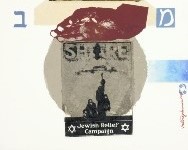Restaging Brundibár: an Exercise in Resistance and an Antidote to Intolerance
um exercício de resistência e um antídoto para a intolerância
DOI :
https://doi.org/10.35699/1982-3053.2020.21744Mots-clés :
Hans Krása, Holocasut, MusicRésumé
In 2007 I had the chance to direct Brundibár ,a children’s opera by the Czech composer Hans Krása, as part of a project carried out at the Juiz de Fora Military College (CMJF) in Brazil. At face value, it seems trivial: one more school music project. However, the context within which the opera acquired renown –that of the Holocaust –broadens the project’s reach. This context produced profound reflections on the links between ethics and aesthetics, particularly when it came to remember –with children – traumatic events that themselves involved so many youngsters. This article reports on that experience.
Téléchargements
Références
GILBERT, Shirli. 2005. Music in the Holocaust: Confronting Life in the Nazi Ghettos and Camps. New York, Oxford Univ. Press.
GRANT, James P.; UNICEF. 1994. I Dream of Peace: Images of War by Children of Former
Yugoslavia. New York: Harper Collins.
KARAS, Joza. 1993 La Musique à Terezín, 1941-1945. Paris: Gallimard.
KLINGER, João; Klinger, Eva. 2008. Nosso Legado. Uma história de fé, coragem e determinação. São Paulo: Limiar.
KRÁSA, Hans. Brundibár. Partitura. (Libretto by Adolf Hoffmeister). (1993) Prague: Tempo.
TOLTZ, Joseph. 2004. “Music: An Active Toll of Deception? The case of Brundibár in
Terezín”. Context; vols 27 & 28. Pp. 43-50.
Téléchargements
Publiée
Comment citer
Numéro
Rubrique
Licence
(c) Tous droits réservés Arquivo Maaravi: Revista Digital de Estudos Judaicos da UFMG 2020

Ce travail est disponible sous la licence Creative Commons Attribution 4.0 International .
Os direitos autorais pertencem exclusivamente aos autores. Os direitos de licenciamento utilizados pelo periódico é a licença Creative Commons Attribution 4.0 (CC BY 4.0): são permitidos o compartilhamento (cópia e distribuição do material em qualquer meio ou formato) e adaptação (remix, transformação e criação de material a partir do conteúdo assim licenciado para quaisquer fins, inclusive comerciais.






